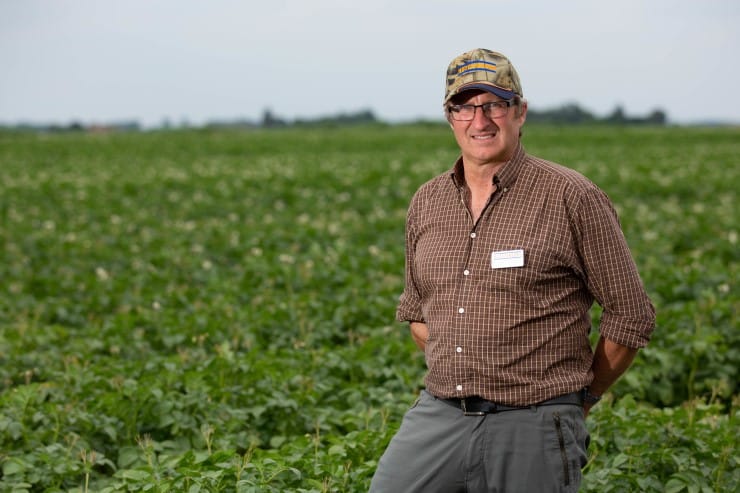Over the next few weeks sugar beet weed control will be my major concern – Arable Farming – Darryl Shailes
Cold, dry springs seem to be the thing these days, certainly in the last few years at least. ...
Maybe they’ve become more frequent than we remember or did we once have the springs we wished for, dry enough for the land work then enough warmth and rain to get it all going?
This succession of cold, dry spring brings its own challenges but with seedbed conditions much better than those last season due to frost mould, we should have a better emergence for sugar beet across the board. All we need to set things up is a nice warm rain, with most crops having gone into excellent conditions.

Darryl Shailes,
The cold weather has bought one benefit in that we I’ve only had to cut the grass once so far, which is just as well. I’ve always been surprised at the number of times growers have commented that the combine or stone separator, for example, has broken down as soon as it’s gone in the field. I’d been thinking why not check before? Now I know what it’s like – we put our mowers away last winter working well and had two breakdowns the first time out. These are now with the mower repair man but, luckily, we still had another to get the job done. Over-tackled, the fixed cost experts will tell me.
Over the next few weeks sugar beet weed control will be my major concern. With the loss of the desmedipham-based products and their excellent modern formulations, such as suspo-emulsions and oily flowables, we are limited to suspension concentrates without desmedipham. In the days before desmedipham we at least had Betanal E (phenmedipham), Nortron (ethofumesate) and Twin (phenmedipham + ethofumesate), all emulsifiable concentrate formulations, and these were pretty potent materials.
Less effective
As we go into this spring, we are limited to generally less effective products, especially if we start to encounter difficult conditions and larger weeds. We had hoped for good activity from the pre-emergence herbicides we have applied but the lack of rain since most of them have gone on means they are having limited effect at present. That, when combined with the recent run of sharp frosts as the beet are emerging, doesn’t bode well. I think a few weeks of pretty intense field walking and lots of herbicide recommendations and beet spraying on shortened intervals are ahead of us.
Potato-wise, growth is pretty slow. This is not surprising with the soil temperatures being so low, but again planting conditions are good.
One of the notable things from this season for me so far has been the extremely low incidence of black scurf I’ve seen during seed inspections. With no real threshold for treatment, many crops are treated with something as an insurance, but so far this season I’ve recommended hardly anything on the processing crops.
This could be the last season with mancozeb in potatoes for phytophthora and alternaria control. It may have a stay of execution but will go within the next one to three years.
We’ve always had multisite contact materials in crops, certainly since I’ve been working, and mancozeb has always been there in potatoes. While not as effective as the single site actives, these multisites have been in the background protecting the more active materials from resistance issues.
In my working life I’ve seen the loss of activity of the phenylamine group of systemic fungicides on certain genotypes of phytophthora and more recently fluazinam on Dark Green 37 and strobilurins on alternaria. Without the support of mancozeb, the risk of genotypes of blight and alternaria developing that are resistant to the remaining chemistry won’t necessarily increase if used wisely, but when they do appear their effect could be more damaging. The potato fungicide programme of the future will be as much about protecting the chemistry we have left by utilising a robust anti-resistance strategy as it will be safeguarding the crop from damage caused by phytophthora and alternaria.